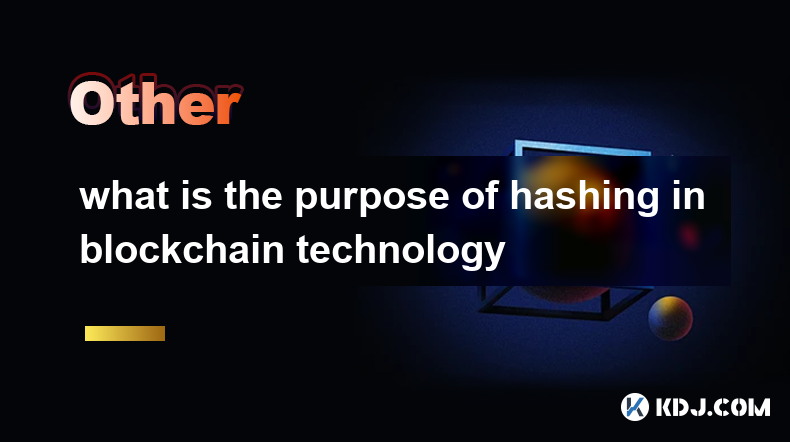-
 Bitcoin
Bitcoin $83,036.0880
-0.49% -
 Ethereum
Ethereum $1,796.9105
-0.75% -
 Tether USDt
Tether USDt $0.9995
-0.02% -
 XRP
XRP $2.0978
-1.74% -
 BNB
BNB $591.3462
-0.59% -
 Solana
Solana $118.9341
-1.41% -
 USDC
USDC $0.9999
-0.01% -
 Dogecoin
Dogecoin $0.1653
-2.26% -
 Cardano
Cardano $0.6391
-2.63% -
 TRON
TRON $0.2373
-0.17% -
 UNUS SED LEO
UNUS SED LEO $9.1321
2.97% -
 Chainlink
Chainlink $12.6426
-1.77% -
 Toncoin
Toncoin $3.2402
-1.89% -
 Stellar
Stellar $0.2486
-3.45% -
 Avalanche
Avalanche $17.2089
-5.32% -
 Shiba Inu
Shiba Inu $0.0...01212
-1.85% -
 Sui
Sui $2.1589
-3.56% -
 Hedera
Hedera $0.1581
-2.69% -
 Litecoin
Litecoin $81.7232
-2.84% -
 Polkadot
Polkadot $3.9207
-2.31% -
 MANTRA
MANTRA $6.2390
-0.61% -
 Bitcoin Cash
Bitcoin Cash $295.0834
-1.89% -
 Dai
Dai $1.0000
-0.01% -
 Bitget Token
Bitget Token $4.4191
-1.97% -
 Ethena USDe
Ethena USDe $0.9991
0.00% -
 Pi
Pi $0.6548
1.99% -
 Monero
Monero $214.6446
-1.77% -
 Hyperliquid
Hyperliquid $11.6390
-1.67% -
 Uniswap
Uniswap $5.8115
-1.35% -
 OKB
OKB $54.1148
5.72%
what is the purpose of hashing in blockchain technology
Blockchain hashing ensures data integrity, enables efficient verification, and provides security via one-way functions, linking blocks chronologically to create an immutable, decentralized chain.
Mar 25, 2025 at 01:42 am

Key Points:
- Hashing ensures data integrity in blockchain. Changes to data result in entirely different hash values, instantly revealing tampering.
- Hashing enables efficient data verification. Nodes can independently verify blocks without needing the entire blockchain history.
- Hashing provides security through cryptographic one-way functions, making it computationally infeasible to reverse a hash to find the original data.
- Hashing links blocks together chronologically, forming the immutable chain. Each block's hash incorporates the previous block's hash, creating a chain of dependencies.
- Hashing contributes to the decentralization of the blockchain. No single entity controls the hash function, ensuring trust and transparency.
What is the Purpose of Hashing in Blockchain Technology?
Hashing is a fundamental cryptographic technique integral to the functionality and security of blockchain technology. Its primary purpose is to create a unique digital fingerprint for any given data, regardless of its size. This fingerprint, known as a hash, is a fixed-length string of characters. Even a tiny change to the original data results in a completely different hash, a property crucial for blockchain's integrity.
The use of hashing in blockchain technology addresses several critical aspects:
1. Ensuring Data Integrity:
Hashing allows for the immediate detection of any data manipulation. If a single bit of information within a block is altered, the resulting hash will be entirely different. This instantly alerts the network to potential tampering, maintaining the integrity of the blockchain. This feature is vital for trust and reliability.
2. Efficient Data Verification:
Blockchains often contain extensive transaction data. Verifying every transaction individually would be incredibly resource-intensive. Hashing allows nodes to verify the integrity of a block efficiently. By calculating the hash of the block's data and comparing it to the hash stored in the block header, nodes can confirm the block's authenticity without processing all the transactions.
3. Providing Security:
Cryptographic hash functions used in blockchains are designed to be one-way functions. This means it's computationally infeasible to reverse the hash and determine the original data. This one-way property protects the data's confidentiality and prevents malicious actors from altering the blockchain without detection.
4. Linking Blocks Chronologically:
Each block in a blockchain contains a hash of the previous block. This creates a chain of blocks, linked together chronologically. This chain of dependencies makes it incredibly difficult to alter past blocks without altering subsequent blocks, making the blockchain tamper-proof. The chain structure is fundamental to blockchain's immutability.
5. Contributing to Decentralization:
The hash function itself is not controlled by any single entity. This ensures transparency and prevents any single point of failure or manipulation. The decentralized nature of the hash function enhances the overall security and trust of the blockchain network.
How Hashing Works in a Blockchain:
The process involves several steps:
- Data Input: The data to be hashed, such as a set of transactions, is gathered.
- Hash Function Application: A cryptographic hash function (like SHA-256 or SHA-3) is applied to the data.
- Hash Generation: The hash function generates a unique, fixed-length hash value.
- Block Inclusion: This hash is included in the block header, along with other metadata.
- Chain Linking: The block's hash is then included in the header of the next block, creating the chain.
Types of Hash Functions Used in Blockchain:
Several cryptographic hash functions are suitable for blockchain applications, each with its strengths and weaknesses. Popular choices include SHA-256, SHA-3, and Blake2b. These functions are designed to be collision-resistant, meaning it's extremely difficult to find two different inputs that produce the same hash.
The Importance of Collision Resistance:
Collision resistance is paramount in blockchain security. If a collision were found (two different sets of transactions producing the same hash), it would compromise the integrity and security of the blockchain, allowing for potential manipulation. The strong collision resistance of the chosen hash function is crucial for the security of the entire system.
Common Questions and Answers:
Q: What happens if a hash is altered?
A: Altering a hash will immediately be detected. The altered hash will not match the calculated hash of the block's data, invalidating the block and alerting the network to potential tampering.
Q: Can a hash be reversed to obtain the original data?
A: No, cryptographic hash functions are designed to be one-way functions. Reversing a hash to get the original data is computationally infeasible with current technology.
Q: Why are different hash functions used?
A: Different hash functions offer varying levels of security and efficiency. The choice of hash function depends on the specific requirements and security considerations of the blockchain network.
Q: How does hashing contribute to the immutability of the blockchain?
A: The chaining of blocks through their hashes creates a chronological, tamper-evident record. Altering a block requires altering all subsequent blocks, making it practically impossible to tamper with the blockchain without detection.
Q: What are the implications of a weak hash function?
A: A weak hash function could lead to vulnerabilities, increasing the risk of collisions and making the blockchain susceptible to manipulation. This could compromise the integrity and security of the entire system.
Disclaimer:info@kdj.com
The information provided is not trading advice. kdj.com does not assume any responsibility for any investments made based on the information provided in this article. Cryptocurrencies are highly volatile and it is highly recommended that you invest with caution after thorough research!
If you believe that the content used on this website infringes your copyright, please contact us immediately (info@kdj.com) and we will delete it promptly.
- New EIGHTH ERA™ Mobile Game Players Can Acquire NGC-certified MS70 Examples of the 2025 American Silver Eagle Bullion Coins
- 2025-04-06 15:30:12
- Ethereum Olux Review: Is It a Scam or Legit?
- 2025-04-06 15:30:12
- BlockDAG's Keynote 3 Signals Mainnet Launch with $209.5M Presale—While ARB Volume & Jupiter Valuation Stay Strong
- 2025-04-06 15:25:12
- Ethereum price downturn rattles investors as the token plunges 52% from its December high
- 2025-04-06 15:25:12
- Solana (SOL) Price Seems to Be at a Crucial Price Level. Will It Bounce or Break Down?
- 2025-04-06 15:20:13
- Meme Coins Are Back in the Spotlight as BTFD Coin Tears Through Its Presale
- 2025-04-06 15:20:13
Related knowledge

Is the ranking of Chinese blockchain apps real and reliable?
Apr 04,2025 at 09:01pm
The ranking of Chinese blockchain apps has become a topic of interest for many in the cryptocurrency community, as it provides insights into the popularity and adoption of blockchain technology within China. However, the reliability and authenticity of these rankings are often questioned. This article aims to delve into the factors that influence these ...

What are the future development trends of blockchain game development?
Apr 03,2025 at 05:00am
Blockchain technology has revolutionized various industries, and gaming is no exception. As we look to the future, several trends are set to shape the development of blockchain games. These trends not only promise to enhance the gaming experience but also to integrate blockchain technology more seamlessly into the gaming ecosystem. Let's explore these t...

What are the high-return opportunities for blockchain investments?
Apr 05,2025 at 02:35pm
Blockchain technology has revolutionized the financial world, offering numerous high-return investment opportunities. These opportunities span various sectors within the cryptocurrency ecosystem, including cryptocurrencies, decentralized finance (DeFi), non-fungible tokens (NFTs), and blockchain startups. Each of these areas presents unique risks and re...

What are the maintenance costs of blockchain system development?
Apr 03,2025 at 06:07pm
The maintenance costs of blockchain system development are multifaceted and depend on various factors. These costs can include technical maintenance, security updates, infrastructure expenses, and personnel costs. Understanding these elements is crucial for anyone planning to develop or maintain a blockchain system. Technical MaintenanceTechnical mainte...

What are the money-making models of blockchain games?
Apr 04,2025 at 02:00pm
Blockchain games have emerged as a revolutionary way for players to earn real money while enjoying their favorite pastime. These games leverage the power of blockchain technology to create unique money-making models that benefit both the players and the developers. In this article, we will explore the various money-making models of blockchain games and ...

What are the money-making opportunities in the application of blockchain in the field of Internet of Things?
Apr 05,2025 at 10:35pm
The integration of blockchain technology with the Internet of Things (IoT) presents numerous money-making opportunities. Blockchain, with its decentralized and secure nature, can revolutionize how IoT devices interact, manage data, and conduct transactions. This article will explore various avenues where entrepreneurs, developers, and investors can capi...

Is the ranking of Chinese blockchain apps real and reliable?
Apr 04,2025 at 09:01pm
The ranking of Chinese blockchain apps has become a topic of interest for many in the cryptocurrency community, as it provides insights into the popularity and adoption of blockchain technology within China. However, the reliability and authenticity of these rankings are often questioned. This article aims to delve into the factors that influence these ...

What are the future development trends of blockchain game development?
Apr 03,2025 at 05:00am
Blockchain technology has revolutionized various industries, and gaming is no exception. As we look to the future, several trends are set to shape the development of blockchain games. These trends not only promise to enhance the gaming experience but also to integrate blockchain technology more seamlessly into the gaming ecosystem. Let's explore these t...

What are the high-return opportunities for blockchain investments?
Apr 05,2025 at 02:35pm
Blockchain technology has revolutionized the financial world, offering numerous high-return investment opportunities. These opportunities span various sectors within the cryptocurrency ecosystem, including cryptocurrencies, decentralized finance (DeFi), non-fungible tokens (NFTs), and blockchain startups. Each of these areas presents unique risks and re...

What are the maintenance costs of blockchain system development?
Apr 03,2025 at 06:07pm
The maintenance costs of blockchain system development are multifaceted and depend on various factors. These costs can include technical maintenance, security updates, infrastructure expenses, and personnel costs. Understanding these elements is crucial for anyone planning to develop or maintain a blockchain system. Technical MaintenanceTechnical mainte...

What are the money-making models of blockchain games?
Apr 04,2025 at 02:00pm
Blockchain games have emerged as a revolutionary way for players to earn real money while enjoying their favorite pastime. These games leverage the power of blockchain technology to create unique money-making models that benefit both the players and the developers. In this article, we will explore the various money-making models of blockchain games and ...

What are the money-making opportunities in the application of blockchain in the field of Internet of Things?
Apr 05,2025 at 10:35pm
The integration of blockchain technology with the Internet of Things (IoT) presents numerous money-making opportunities. Blockchain, with its decentralized and secure nature, can revolutionize how IoT devices interact, manage data, and conduct transactions. This article will explore various avenues where entrepreneurs, developers, and investors can capi...
See all articles




















































































